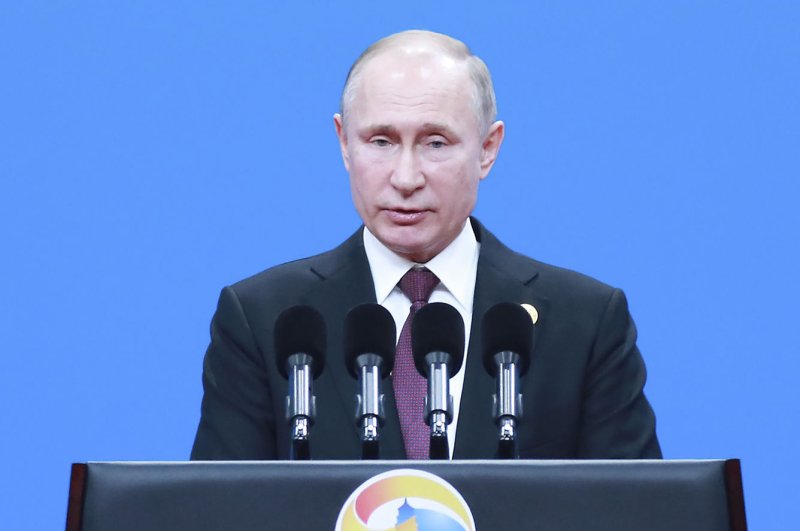Russian President Vladimir Putin submitted a bill to the country's Federal Assembly to formally withdraw from the Intermediate-Range Nuclear Forces Treaty. File Photo by Pang Xinglei/UPI |
License Photo
May 30 (UPI) -- Russian President Vladimir Putin moved Thursday to remove the country from a nuclear arms control treaty that has been active since the end of the Cold War.
Putin submitted a bill to Russia's parliament, the Federal Assembly, that would withdraw itself from the Intermediate-Range Nuclear Forces Treaty after the United States elected to withdraw from the agreement in February.
The bill includes a provision allowing the Russian president the power to reinstitute the INF if deemed necessary.
Putin first announced that Russia would suspend its involvement in the INF in February, shortly after U.S. Secretary of State Mike Pompeo accused Russia of violating the agreement and stating the United States would pull out of the agreement if Russia didn't reach compliance within 60 days.
The treaty, signed by President Ronald Reagan and Soviet Union President Mikhail Gorbachev in 1987, banned all land-based cruise missiles with a range between 310 miles and 3,417 miles. Russia denied violating these terms.
On Wednesday, Lt. Gen. Robert Ashley, director of the U.S. Defense Intelligence Agency, stated that the United States believes Moscow is also violating the Comprehensive Nuclear Test Ban Treaty in order to conduct tests aimed at developing new nuclear weapons capabilities.
"The United States believes Russia is probably not adhering to the nuclear testing moratorium in a manner consistent with the zero-yield standard," Ashley said. "Our understanding of nuclear weapon development leads us to believe Russia's testing activities would help it improve its nuclear weapon capabilities."
Ashley said he couldn't confirm Russia was conducting the test, but rather that they had the capability to conduct them.
"It is our belief that they are set up in such a way that they are able to operate beyond a way that would be necessary for a zero-yield and so the facilities they are operating have that capacity to operate in something other than zero-yield."















